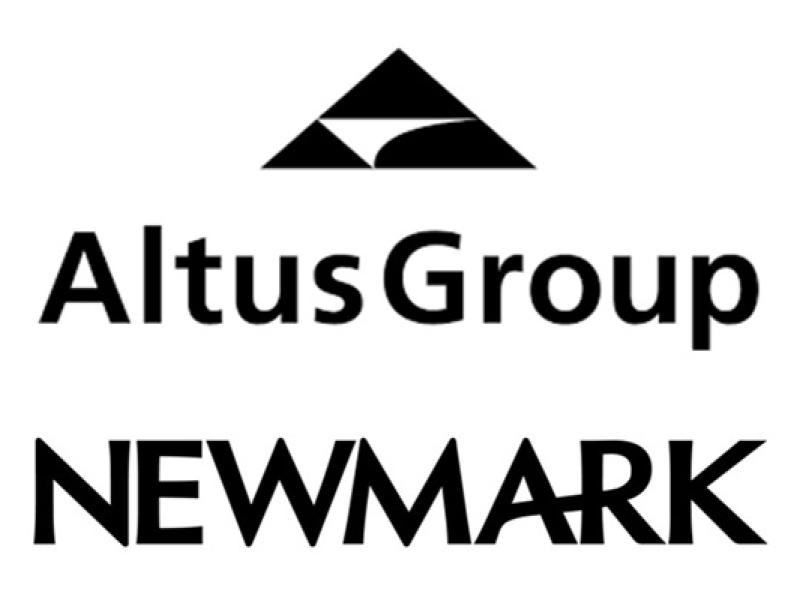
The federal government has unveiled plans to invest over $21 billion in new funds into apartment construction financing, infrastructure to support new housing and other programs to help alleviate the country's housing crisis.
The announcements have been made during the past two days in Toronto and Halifax by Prime Minister Justin Trudeau. They include:
- a $15-billion top-up to the existing Apartment Construction Loan Program, expanding that initiative to $55 billion;
- a $6-billion Canada Housing Infrastructure Fund (CHIF) to arm provinces with funds to build water and solid waste infrastructure provided they facilitate rapid construction of more, and denser, housing options;
- launching what it calls a Canada Builds program to partner with provinces and territories to increase rental housing construction - provided they agree to a series of terms mandated by the feds;
- and adding $400 million to the existing Housing Accelerator Fund.
Tuesday in Halifax, Trudeau announced the CHIF, which allocates $5 billion for provinces and territories if they implement changes demanded by the feds. An additional $1 billion is earmarked directly for municipalities to build infrastructure needed for more housing - with the same caveats.
The provinces and territories must push municipalities to allow more multiplexes, townhouses and multi-unit apartments; and a three-year moratorium on increasing development charges for municipalities exceeding 300,000 in population has been immediately implemented.
Municipalities will also be permitted to tap into the federal government’s upcoming public transit fund if they take steps such as eliminating mandatory minimum parking requirements within 800 metres of a high-frequency transit line and allowing high-density housing within 800 metres of a high-frequency transit line or post-secondary institution.
Additionally, the National Building Code will be amended to support more “accessible, affordable, and climate-friendly housing options.” As-of-right construction for the Housing Design Catalogue will be required as well.
Another $400 million was injected into the Housing Accelerator Fund, growing it to a $4.4 billion program.
The Canada Housing Infrastructure Fund is part of a preview of the Canadian government’s 2024 budget set for release April 16.
It comes as Canada’s largest cities continue to grapple with high housing costs, affecting the Trudeau government’s popularity.
Canada’s population has been growing at its fastest rate since 1957 while housing starts are lagging for a long list of reasons - putting more pressure on both government and the building industry to house newcomers.
The rental housing construction initiatives
Announced Wednesday morning in Toronto, the Apartment Construction Loan Program initiative will also be amended to increase access and provide additional flexibility for developers and builders. These reforms include:
- extending loan terms;
- extending access to financing to include housing for students and seniors;
- introducing a portfolio approach to eligibility requirements so builders can move forward on multiple sites at once;
- providing additional flexibility on affordability, energy efficiency and accessibility requirements; and
- launching a new frequent builder stream to fast-track applications for proven home builders.
The Canada Builds initiative will allow provinces and territories with their own housing plans to partner with the Apartment Construction Loan Program - in similar fashion to the recently announced BC Builds initiative.
To access federal financing, provinces and territories will be expected to meet the benchmarks set by BC Builds, according to Wednesday's announcement.
These actions include complementing the federal funds with provincial or territorial investments; allowing building on government, non-profit, community-owned and vacant lands; streamlining development approval processes to a maximum of 18 months; and meeting the Apartment Construction Loan Program criteria.
Deadlines for provinces to agree, join initiative
For the CHIF, provinces will have until Jan. 1, 2025 to secure an agreement, while territories will have until April 1, 2025. If the province or territory does not finalize a deal by the deadline, the feds plan to shift funding to the municipal fund and circumvent the provincial government.
The demand for densification - particularly some forms of as-of-right multiplexes in residential communities - may collide with the policies of Ontario Premier Doug Ford.
The premier said in March he is opposed to allowing four-storey buildings to be built in residential neighbourhoods without municipal approval.
“No single player can fill Canada’s housing shortage on its own,” the federal government said in a release.
“More must be done and all of Team Canada – the federal government, provinces and territories, Indigenous partners, cities and towns, the private sector, labour, and non-profits – must work together to ensure everyone has an affordable place to call home.”
As part of its measures to support renters, Trudeau also announced a $15-million Tenant Protection Fund to financially support tenants’ rights organizations and legal aid groups. A Canadian Renters’ Bill of Rights, akin to the Home Buyers’ Bill of Rights, is being proposed.
Land owners would be required to disclose past rental prices to support renters’ cost negotiations; a nationwide standard lease agreement would be created; and so-called renovictions would be targeted.
Funding the federal government allocated for housing
The announcements summarized the federal government’s efforts to support housing construction:
- The Apartment Construction Loan Program, a $55-billion-plus initiative aimed at accelerating construction of rental homes by giving low-cost financing to homebuilders;
- the Affordable Housing Fund, a program valued at over $14 billion supporting the construction of new market and below-market rental housing, and repair of existing housing; and
- a $4.4-billion Rapid Housing Initiative designed to fast-track housing for people at high risk of homelessness.
The Apartment Construction Loan Program has funded over $18 billion in loans to support building more than 48,000 rental homes and is on track to build 101,000 new rental homes in Canada by 2032, the release states. The new funding moves the ultimate goal to 131,000 new rental homes.
More than 32,000 homes were supported by the Affordable Housing Fund, it adds.
“Challenges surrounding existing infrastructure and building new infrastructure, particularly water and waste-water, have created significant development bottlenecks in the Greater Toronto Area,” said Dave Wilkes, president and CEO of Building Industry and Land Development Association (BILD), in a statement following Tuesday's initial announcement.
- With files from Don Wilcox
"This commitment by the federal government to invest in critical infrastructure is vital to unlocking housing supply to meet Canada’s rapidly growing population, enabling more homes to be built and will help address the housing affordability crisis.”









